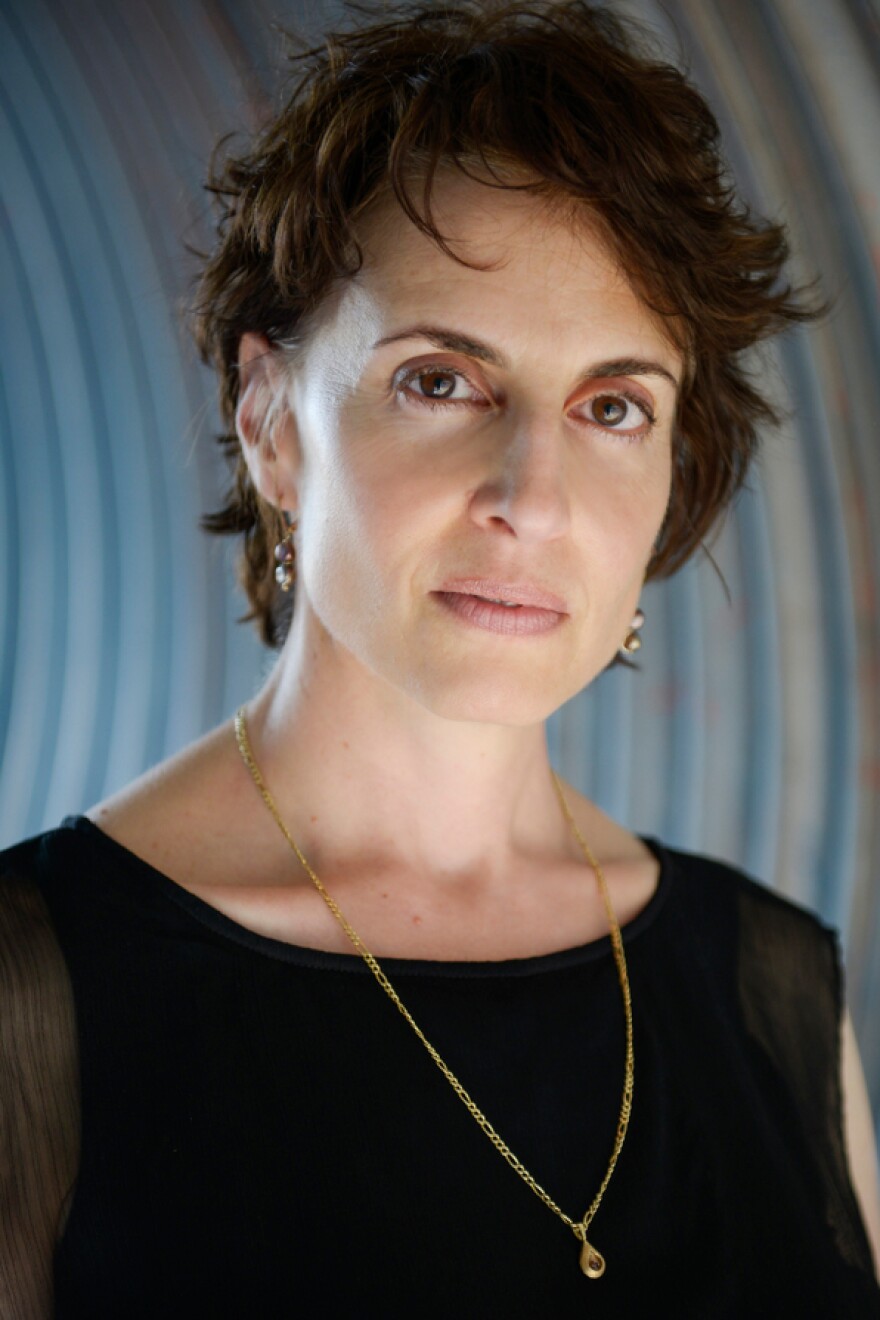Grand Canyon National Park has a unique Astronomer-in-Residence Program that isn’t just for professional scientists. The ASTiR program is also open to educators, visual and performing artists and writers, who highlight the nuances of the night sky through creativity, science, and awareness.
The park’s latest Astronomer-in-Residence is poet Lauren Camp, a recipient of the American Fiction Award for Poetry.
She spoke with KNAU’s Bree Burkitt about her first starry night on the job and finding inspiration in the dark.
KNAU: And I know it's early, but as you spend your first night there, what have you seen? What are your initial thoughts as you get to see our beautiful dark skies at the canyon?

Lauren Camp: Well, it's interesting, one of the things that I realize I'm here to see is not seeing is — is the other senses, perhaps, and how to express those. How last night I was out, I went to a ranger talk and I walked along the Rim Trail, as it got darker and darker and people were gathered for sunset and then they dissipated. And I came home in the dark and I really couldn't see very well. I had a headlamp. And I realized how pleasurable it was to just only have to see where my feet were going for a next step. So part of what I'm here to see is what I can't see. What I what I may never get to see instead of seeing so much all the time.
KNAU: So, how did a poet become the Grand Canyon’s Astronomer in Residence?
LC: The idea, as I understand it, is to explore night skies and Grand Canyon's pristine night skies, through a lot of different disciplines from various sciences through the arts. So it's been opened to me as an opportunity because I have one way of expressing. Someone else will come in with a different way.
I'm not an astronomer. I am a lover of the outdoors. I through poetry, have learned better over decades, how to witness how to pay attention, and how to begin to shape my thoughts or my experiences into language. And so when this opportunity arose, it, it was it was a challenge, it was an interesting chance to figure out how would I say what I can see at night, or what I can't see.
KNAU: And have you always sought your inspiration from our environment around? Or is this new for you?
LC: This is brand new, and, in fact, I was thinking about this, I guess yesterday that I am from a family... I grew up in New York and out in the suburbs of the city. And I'm from a family that really didn't know anything about nature — about the outdoors didn't, didn't. We... That wasn't where we spend our holidays. That wasn't what we did, though I wasn't introduced to that until I was an adult and, and sort of fell in with it very easily —Very comfortably, though, as though it was a home for me and have just over years, explored and learned. Poetry gives me the chance to keep learning all the time because it's always very appealing to name things in poems. So I'm forever researching, learning, questioning, wondering, and night skies are a new thing for me to get to wonder about.
The Astronomer in Residence program is run by the National Park Service and Grand Canyon Conservancy. Applications are now open for next year’s residency. Learn more at https://www.nps.gov/grca/astronomer-in-residence.htm.



